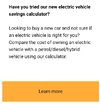- Joined
- 26 March 2014
- Posts
- 20,309
- Reactions
- 13,056
I womder what ever happened to Ralph Sarich's rotary engine that was going to set the world alight all those years ago.

I womder what ever happened to Ralph Sarich's rotary engine that was going to set the world alight all those years ago.

From memory the engine was dropped, a mate worked for them and he said their fuel injection was very good and was used by Mercury outboards, again only going from distant memory which is becoming vague with age related software issues.I womder what ever happened to Ralph Sarich's rotary engine that was going to set the world alight all those years ago.
I womder what ever happened to Ralph Sarich's rotary engine that was going to set the world alight all those years ago.
Spot on John, my oldest son had an RX2 coupe with a 13B, sold it about 5 years ago, screamed its guts out and tore through fuel.I remember going to automotive shows and seeing Sarich on his stand explaining and showing his concept.
From memory, the idea was good, but a couple of small issues kept it from taking off. One issue was the gears it used, making it complex and noisy. And the other was the fact that the Rotary engine is a horsepower unit rather than a torque producer.
Rotary engines don't produce torque. Horsepower is great for high-speed engines; circuit racing guys love them, but efficiency is not the greatest. And that is what the Sarich engine was meant to overcome - increased efficiency and torque production.
Customers of engines work in a world where cost comes first, it is cheaper to purchase and run a piston/conrod engine than a rotary. The piston/conrod engine can easily and cheaply be designed for maximum torque.
Mazda's rotary engine is just a nice gimmick like all sports cars, great lookers that go fast but you can't take the family in it and it's no good for a load of timber.
Horsepower vs. Torque: Which Is More Important?



Better late than never.NAGOYA, Japan -- Toyota Motor plans to triple electric vehicle production in 2025 from its 2024 plan, Nikkei has learned, as the automaker steps up its electrification push to catch up to rivals including Tesla and BYD.
The automaker notified major parts suppliers of its plans to boost production of Toyota and Lexus brand EVs to 600,000 units in 2025. The production target for 2024 is set at 190,000 units. Toyota sold 24,000 EVs in 2022.
Toyota's production target for all vehicles in 2023 is over 10 million units, including about 150,000 EVs. For 2025, the company aims to produce 11 million vehicles, meaning EVs would make up 5% to 6% of all vehicles.
The sales plan includes original equipment manufacturer models. A parts company executive estimates that Toyota's EV sales in 2025 will be "around 800,000 units, including OEM sales."
Toyota is rolling out a new EV Hilux model in Thailand as early as this year and electric SUVs in China and the U.S. next year. And an electric Lexus ES model is slated for release in Japan in 2025.
It is also jointly developing EV versions of mini commercial vehicles with Suzuki Motor and subsidiary Daihatsu Motor.
The carmaker will produce EVs at two of its main plants in the city of Toyota in Aichi prefecture, as well as at a Lexus plant in Fukuoka prefecture on the island of Kyushu.
In the U.S., batteries for the EVs will be primarily produced at a dedicated plant scheduled to start operations in 2025. Toyota will also set up production lines for batteries at two Aichi plants. Battery subsidiary Prime Planet Energy & Solutions will increase production.
Toyota will also procure some batteries from Chinese battery leader Contemporary Amperex Technology (CATL), and China's top EV maker BYD. It is also in negotiations to procure from South Korea's LG Energy Solution.
Toyota plans to introduce a next-generation EV platform starting with Lexus models sold in 2026. It will adopt gigacasting equipment that can mold aluminum into vehicle chassis parts, saving time, money and labor.
MickFord Motor Co. on Monday halted construction of a $3.5 billion electric vehicle battery plant project in the Marshall area amid months of battles with local residents, Republicans in Congress over its planned use of Chinese technology and an auto industry strike in its second week.
"We're pausing work, and we're going to limit spending on construction at Marshall until we're confident about our ability to competitively run the plant," Ford spokesman T.R. Reid told The Detroit News on Monday. A "number of considerations" were at play in the company's business decision, he said, but wouldn't say whether the United Auto Workers' ongoing strike of Ford and its crosstown rivals was a factor.
Ombudsman calls on Victoria to refund electric car road-user penalties
The Victorian Ombudsman has criticised the State Government’s implementation of a road-user charge for electric and plug-in hybrid vehicles.
“We found an unreasonable lack of policy guidance to those administering the legislation, inflexible handling of complaints, and an unwillingness to exercise discretion,” said Victorian Ombudsman Deborah Glass in her report.
“It is also wrong to charge penalties not provided for in legislation, and the money collected under this ‘penalty’ should be repaid.”
Ms Glass has tabled her investigation into the Department of Transport and Planning’s implementation of the charge. At the time of the investigation, the Department had received more than 180 complaints.
Ombudsman calls on Victoria to refund electric car road-user penalties© Provided by CarExpert.com.au
We’ve contacted the Department for a response.
You can view the Ombudsman’s full report here.
The report focused on 30 complaints about the application of the ZLEV Act, concerning two main issues: whether the charges were unreasonably applied, and whether additional charges imposed after submitting a late odometer declaration were wrong.
The Zero and Low Emissions Vehicles Act 2021 (Vic) allows the state government to collect a road-user charge from owners of electric vehicles (EVs), plug-in hybrid vehicles (PHEVs) and hydrogen fuel-cell electric vehicles (FCEVs).
This charge is indexed, and currently sits at 2.3 cents per kilometre for PHEV owners and 2.8 cents per kilometre for EV owners.
Drivers must provide photographic evidence of their odometer within 14 days of being contacted by the Department, to determine the kilometres travelled at the start and end of each registration period. That even includes travel undertaken outside of Victoria.
The legislation is currently facing a challenge, with the Federal Government making submissions in a case before the High Court of Australia brought by two Victorian motorists who filed suit against the State Government.
That challenge concerns the validity of the legislation, and whether the Victorian Government is constitutionally able to enact and enforce such legislation.
https://www.msn.com/en-au/news/aust...a83785ab124c119&ei=16&fullscreen=true#image=2
No it's all good, it's Victoria, sounds like the EV version of robodebt.Will Victorian EV owners receive a refund? Should there be criminal charges for fraudulent use of government powers?

Note that OZ does not appear on the list.
Is it because we have less than Norways 31 public charging stations per 1,000 EV's , or is it because we were not considered important to be inclue in the list?
View attachment 163148
Perhaps, but it may also be true that other nations have also been increasing their charging stations at an equal or faster rate.It's because that was published in 2022, when Australia had FA public charging stations. If they checked now, I reckon that we'd make the list, just.
Be interesting to see how it all goes and whether they can scale it up.AngloGold Ashanti’s Sunrise Dam gold mine in Western Australia is playing host to a “world-first” trial of the Sandvik TH665B, the largest battery-electric underground mining truck.
The truck boasts an electric driveline delivering 630kW, or 858hp, and hosts a 354kWh lithium-iron phosphate (LiFePO4 or LFP) battery.
The prototype BEV truck is capable of moving a maximum payload of 65,000kg and produces no emissions while generating 80% less heat – a potential gamechanger in underground mining situations.
Andrew Dawson, business line manager for load and haul at Sandvik, said: “There are major benefits from Sandvik BEVs for operator health and safety thanks to reduced diesel particulates, less noise and vibration, and a reduction in heat generation.”
Moreover, the TH665B is also expected to operate at up to 25% faster on a 1:7 ramp as compared to regular diesel trucks.
The trial of the Sandvik TH665B got underway on September 14 under a three-party agreement between the mine’s owner AngloGold Ashanti, hard rock underground contract miner Barminco, and Sandvik.
Another important key feature of the Sandvik TH665B is its patented battery self-swapping system, “which makes the battery changing process extremely fast and easy, usually taking only three minutes,” said Dawson.
“It also allows the operator to stay in the cabin during the process, and there’s no need for major infrastructure like overhead cranes.”
And I imagine the impact of a fire there, even if gold mknkng is safer than coal obviously ...the released chemicals of a fire would be horrendous in a closed environmentAn all electric underground mining haul truck is on testing duties n OZ.
from The driven
Be interesting to see how it all goes and whether they can scale it up.
354 KWHr battery is a big bugger to charge up. Makes life more difficult if you have a fleet of 30 of them.
Mick
The next coming Big BangAnd I imagine the impact of a fire there, even if gold mknkng is safer than coal obviously ...the released chemicals of a fire would be horrendous in a closed environment
Then theres this one fromThe GuardianJohn Lewis Financial Services has temporarily stopped offering insurance to drivers of electric vehicles – a decision made by its underwriter Covéa.
In a statement sent to Insurance Times today (2 October 2023), the department store’s lending arm said it had halted offering new policies as well as renewals for EVs.
It said the move came as Covéa raised fears over the cost of repairing the vehicles.
Back in April 2021, Covéa entered into a five-year motor insurance partnership with the department store – the deal sees car insurance marketed by John Lewis, with policy administration, underwriting, pricing and claims service provided by Covéa.
A John Lewis Financial Services spokesperson said: “Our underwriter has temporarily paused offering new policies and renewals on fully electric vehicles whilst they analyse the risks and costs entailed.
“This decision does not affect any existing policies in force or hybrid vehicles.”
I suspect this issue will start to rear its ugly head in Oz.‘The quotes were £5,000 or more’: electric vehicle owners face soaring insurance costs
Drivers who ditched petrol and diesel to help save the planet face huge price rises in premiums
Driving an electric car should be a win-win, saving money and the planet. So David* was shocked when the insurance on his Tesla Model Y came up for renewal, and Aviva refused to cover him again, while several other brands turned him away.
When David did secure a new deal, the annual cost rocketed from £1,200 to more than £5,000.
“My insurer was Aviva from July 2022 to July 2023, but when it was coming up for renewal, I received a letter stating that they would not be covering the Tesla Model Y any more,” David says. “I am a member of a Tesla UK owners forum, and lots of other people seem to be having the same issue.”
In the Facebook group, members share stories of horror renewal quotes, with increases ranging from 60% (up to £1,100) to a staggering 940% (a jump from £447 to £4,661, according to a screengrab shared by one driver).
“I spent weeks on every comparison site as well as trying individual insurers and specialist brokers, but either they wouldn’t cover the car or the quotes were £5,000 or more,” says David, whose only change in circumstance was three points on a licence.
Privilege, Vitality, Axa and the specialist broker Adrian Flux were among the brands he found were “unable to insure him at this time” before he nailed down a policy with Direct Line, albeit at a price.
I have read in the past two days seprate reports from the UK where Insurance companies are refusing to insure or reinsure elctric vehicles because of the high propensity for them to be Insurance write offs (as distinct from statutory write offs).
It seems that the cost of repairing an EV in even a small collision has become prohibitive.
Not that I think this is confined to EV's.
Cars are now designed protect the occupants from injury as the prima faccia.
I have seen a couple of late model cars that seem only superficially damaged at the auction yards.
The problem is, with so many airbags that need to be removed, disposed off carefully (specially the ones that did not go off) and replaced, its just not worthwhile.
Firslty John Lewis in the UK and its underwriters have "paused" EV insurance.
Then theres this one fromThe Guardian
I suspect this issue will start to rear its ugly head in Oz.
Allianz which insures our BYD EV, was very cheap compared to RACV on the insurance.
I hope it does not start to ramp up.
Mick

Hello and welcome to Aussie Stock Forums!
To gain full access you must register. Registration is free and takes only a few seconds to complete.
Already a member? Log in here.